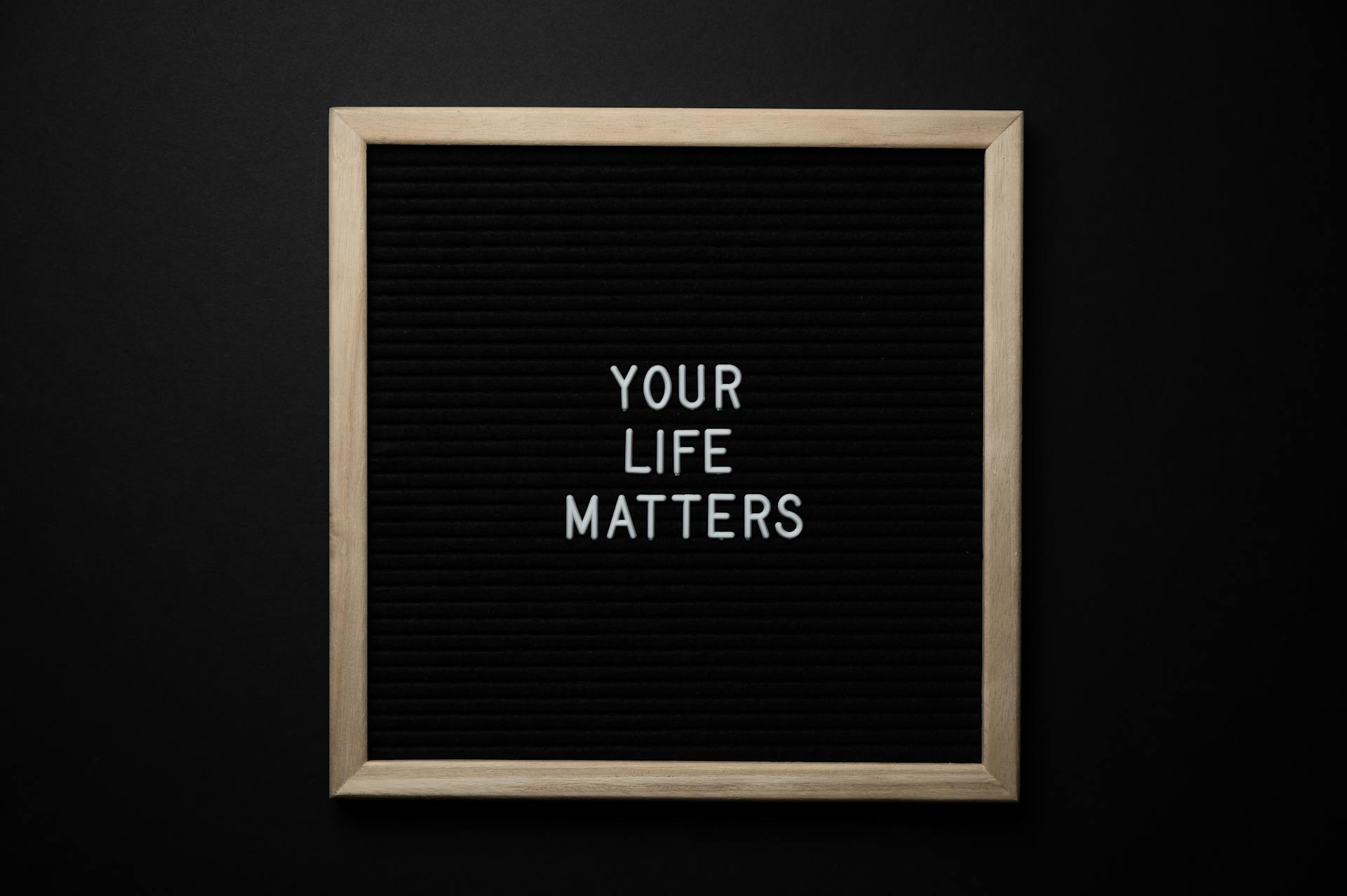
Are you tired of feeling overwhelmed and taken advantage of? Do you struggle with saying "no" to people or situations that don't serve your best interests? If so, then learning how to set boundaries is essential for your well-being. In this ultimate guide, we will explore five ways to draw the line politely and effectively.
Setting boundaries means defining what is acceptable and unacceptable behavior from others towards you. It's about communicating your needs, expectations, and limits in a clear and respectful way. When you set healthy boundaries, you protect yourself from harm, reduce stress and anxiety, and improve your relationships with others. It may feel uncomfortable at first, but the benefits are worth it in the long run.
So whether it's at work, in your personal life or with family members, let's dive into these five ways to set boundaries in a way that is firm yet polite. By the end of this article, you'll have the tools you need to start practicing healthy boundary-setting habits today.
Healthy vs. Unhealthy Boundaries
Healthy boundaries are essential for any relationship to thrive. A healthy boundary is one that respects your own needs and feelings while also respecting the needs and feelings of others. Unhealthy boundaries, on the other hand, are those that do not respect either party's emotional well-being. They often result in resentment or burnout, leading to an unhealthy dynamic between two people. In order to set healthy boundaries, it is important to understand what they look like and how they can benefit both parties involved.
1. Healthy Boundaries
Healthy boundaries are essential for maintaining healthy relationships with others. When setting boundaries, it is important to consider your values and beliefs and communicate them clearly with those around you. A person exhibiting healthy boundaries includes feeling free to share information on their own terms and respecting the boundaries of others in return. Stay tuned for more tips on how to set healthy boundaries in your personal and professional life.
2. Unhealthy Boundaries
Unhealthy boundaries can quickly turn into dysfunctional relationships, leaving us feeling unsafe and vulnerable. Signs of a person exhibiting unhealthy boundaries include oversharing personal information and easily compromising personal values and beliefs. Setting healthy boundaries, including personal and physical boundaries, can be difficult for those who have trouble accepting their worth, but it is essential in protecting ourselves from abusive partners and maintaining healthy relationships.
3. When Unhealthy Boundaries Become Abusive
It's important to set boundaries in relationships, but when unhealthy boundaries become abusive, it can be dangerous. Abusive behavior includes exerting excessive control or constantly scaring someone, and it can threaten physical safety. If you feel like you're being abused, call the National Domestic Violence Hotline at 1-800-799-SAFE (7233) or text "START". It's reasonable to expect respect and safety in all relationships.
Creating a Safe Space: The Art of Setting Healthy Boundaries
Setting healthy boundaries requires self-awareness, understanding your personal values, and recognizing what you can and cannot tolerate. In specific situations, setting healthy boundaries requires good communication skills to convey assertiveness, which involves expressing your feelings openly and making demands when necessary. It's important to remember that setting healthy boundaries requires people to prioritize their own well-being and self-care.
Tawwab outlines three easy steps for setting healthy boundaries. Step 1 is to voice your needs clearly, step 2 is to state your request directly, and step 3 is to accept any response without guilt or shame. Poor boundaries can lead to codependency issues in people pleasers who may have had childhood carers who taught them the importance of putting others first. However, adulthood means settling for unhealthy relationships that cause resentment or manipulation.
In conclusion, creating a safe space through setting healthy boundaries is essential for mental health and emotional well-being. It's important to remember that we deserve respect and should not feel guilty about prioritizing our needs. By using Tawwab's easy steps, anyone can learn how to set healthy boundaries effectively in any situation.
Ways to Set Positive Limits: Healthy Boundaries Explained

Setting healthy boundaries involves learning to communicate your expectations clearly and addressing problems directly. Healthy boundaries include 7 types that help you understand how to set limits in different areas of your life. Using a boundaries diagram can help you visualize the different boundaries involved.
Assuming people know how you feel or what you need can lead to frustration and disappointment. Learning to express your feelings responsibly and share experiences honestly is an essential part of setting healthy boundaries. It's important to remember that setting boundaries isn't about controlling others but about taking care of yourself.
When addressing problems directly, it's important to focus on the behavior rather than attacking the person involved. By doing this, you can create a safe space for open communication and mutual respect. Setting healthy boundaries is an ongoing process that involves practice and patience, but it's worth it in the end as it helps you cultivate healthy relationships and live a more fulfilling life.
Setting Relationship Boundaries

Setting relationship boundaries is crucial for maintaining healthy relationships. Involved setting boundaries with your partner, parents, friends, or anyone else you interact with regularly. Each type of relationship comes with its unique challenges that require different boundaries to be set. By communicating openly and honestly about your needs and expectations, you can create a strong foundation for mutual respect and understanding in all of your relationships.
1. Setting Boundaries With Partners
Setting boundaries with your partner ensures a healthy relationship and prevents it from turning toxic. When setting boundaries, resist reactivity and set them in a way that doesn't sound accusatory. In an intimate partnership, it's important to be fully present and give your full attention, even if that means checking incoming messages after a few minutes.
2. Setting Boundaries With Parents
Setting boundaries with parents can be challenging, but it's important for adult children to establish their own lives and identities. Studies show that addressing problems with a calm rational discussion helps create a positive outcome. Parents include a small number of individuals who have the potential to be lifelong sources of support, but taking a passive approach may not lead to the desired outcome. By staying cool and picking simple ways to set boundaries, you can become a confident adult while maintaining a healthy relationship with your parents.
Discover the Essential Contents of this Informative Article
Are you struggling to set healthy boundaries in your relationships? If so, you're not alone. This informative article will guide you through the process of setting healthy emotional boundaries that will help you find peace and build positive relationships.
In this article, you'll learn about the seven essential healthy boundaries worksheets pdfs that can help you establish emotional boundaries with others. These resources are designed to help you identify your needs, communicate them effectively, and take action to protect yourself from negative influences.
The take-home message of this article is clear: setting healthy boundaries is essential for your well-being and happiness. By using these positive relationship resources and taking action to establish emotional boundaries, you can create a more fulfilling life filled with meaningful connections and deep personal growth.
Finding Balance: Establishing Effective Work-Life Boundaries
Research shows that blurred work-life boundaries can lead to emotional exhaustion, which in turn affects our mental, emotional, and physical health. With the massive shift toward remote work-from-home scenarios, it's more important than ever to establish clear boundaries between work and personal life. Even a high-achieving lawyer who takes great pride in his work and stays extra late hours needs to disconnect from his home office compulsively checking emails, neglecting quality time with family or friends, and regularly feeling stressed.
To set precise work hours, including a 1-hour lunch break and a morning routine centered on self-care activities such as exercise or meditation can help avoid checking emails first thing in the morning. It's also essential to avoid working outside of those hours unless an emergency arises and delegate tasks when possible. Separating sets of "work clothes" from "lounge clothes" can help set boundaries mentally too.
As one jokingly describes how she inwardly associates her laptop with stress levels, establishing boundaries mentally is crucial for maintaining balance. A real problem resulting from blurring these lines is that we're constantly thinking about work even when we're not working. By implementing these strategies and sticking to them as much as possible, we can safeguard ourselves against burnout while still being productive at work.
Discover the Importance of Setting Boundaries

Setting personal boundaries is a crucial step towards living a fulfilled, balanced life. Without them, we can quickly lose sight of our own needs and become overwhelmed with work, relationships or familial obligations. Good boundaries free us from the burden of trying to please everyone and allow us to live life on our own terms.
Our internal compass for boundaries is our gut feeling - that little voice inside telling us when something doesn't feel quite right. By listening to this instinct, we can identify situations where we need to set clearer limits, whether it's saying no to additional work tasks or asking for more support in our personal lives. Setting clear boundaries not only protects our time and energy, but also helps us avoid resentment or burnout.
While setting boundaries may feel uncomfortable at first, it ultimately leads to greater self-respect and healthier relationships. When we honor our own needs, we show others how to treat us with respect and consideration. By learning how to set good boundaries, we invite more positivity into our lives and create space for meaningful connections with others.
Healthy Boundaries vs. Unhealthy Boundaries

Healthy boundaries are essential for maintaining our mental well-being. Life counselor Dr. Dana Nelson writes that solid boundaries tend to lead to higher self-esteem and a clear identity, while lack of boundaries results in resentment, anger, and lower levels of self-confidence. When we hand people free reign over our lives without setting limits, we risk being easily persuaded and losing sight of the commitments we've made to ourselves.
Personal relationships suffer when poor boundaries lead to us giving too much time and energy to others at the expense of our own needs. Suppose you're tired and need some alone time or feel uncomfortable with someone's behavior towards you; setting boundaries can make all the difference. Healthy boundaries ensure that you don't sacrifice your mental well-being for anyone else's convenience.
Unhealthy boundaries are often a result of not knowing what our limits are or feeling guilty about enforcing them. However, learning how to set healthy boundaries is essential for living a fulfilling life while avoiding burnout. Remember that it's okay to say no, prioritize yourself, and create space for what matters most in your life.
Establishing Limits in Your Romantic Relationship: A Guide

Romantic relationships can be one of the most rewarding and challenging areas to navigate in life. It is important to set boundaries to ensure a healthy relationship dynamic. Setting boundaries is not necessarily healthy, it is vital for maintaining a healthy relationship.
Healthy boundaries allow both partners to feel safe and respected within the relationship. Importantly, relationship boundaries prevent codependency and allow each partner to maintain their own identities outside of the relationship. When setting boundaries, it is essential for both partners to communicate openly and honestly about their needs and expectations.
Establishing common romantic areas where boundaries include communication, personal space, trust, intimacy, and time-management are crucial components of creating a strong foundation for a successful romantic relationship. Don't be afraid to step back and evaluate your own needs as well as those of your partner or potential partner. Remember, setting healthy boundaries in your romantic relationships can help create stronger bonds with your loved ones while avoiding unnecessary conflicts that could damage the relationship over time.
Frequently Asked Questions
Do you know how to draw boundaries?
Yes, I know how to draw boundaries. Setting boundaries is a crucial aspect of maintaining healthy relationships and protecting your own well-being. Would you like to learn more about how to establish and communicate your own personal boundaries?
How to set boundaries?
To set boundaries, communicate clearly and assertively, identify what behaviors are acceptable or not, and be consistent in enforcing them. Remember that setting boundaries is about respecting yourself and your needs while also respecting others.
How to draw the line between you and other people?
Setting boundaries and communicating them clearly is key to drawing the line between yourself and others. It's important to prioritize your own needs and values, and be assertive in stating what you are comfortable with.
Why is it important to set healthy boundaries?
Setting healthy boundaries is important because it helps to establish a sense of control and self-respect in relationships, reduces stress and anxiety, and promotes emotional well-being.
How do you set healthy boundaries in a relationship?
Setting healthy boundaries in a relationship involves clear communication, respect for each other's needs and limits, and a willingness to compromise. It is important to establish boundaries early on and consistently reinforce them throughout the relationship.
Featured Images: pexels.com


